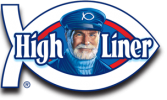High Liner Foods announced on May 10 that it has signed a definitive agreement to buy all the assets Rubicon Resources, a Culiver City, California, USA-headquartered importer of frozen shrimp and other seafood products. The company operates 11 seafood production facilities in Thailand and sources from a number of other suppliers in Southeast Asia.
 “Rubicon is an ideal acquisition for High Liner that will provide sales and earnings growth, and expedite diversification of our product portfolio to aquaculture species, like shrimp, that are experiencing stronger growth rates in North America,” said Keith Decker, president and chief executive officer of Lunenburg, Nova Scotia, Canada-headquartered High Liner.
“Rubicon is an ideal acquisition for High Liner that will provide sales and earnings growth, and expedite diversification of our product portfolio to aquaculture species, like shrimp, that are experiencing stronger growth rates in North America,” said Keith Decker, president and chief executive officer of Lunenburg, Nova Scotia, Canada-headquartered High Liner.
![]() These shrimp farmers in Thailand are part of the Rubicon Resource’s vertically integrated supply chain that provides frozen seafood to North America and other markets.Rubicon’s annual sales in 2016 were approximately $234 million, with pro forma EBITDA of $16 million. The anticipated purchase price is $107.0 million prior to transaction fees, which will be settled 70% in cash and 30% in High Liner Foods common shares, with the share consideration subject to a three year stand-still agreement during which time the sellers are not permitted to sell the shares (except in limited circumstances). The agreement includes a five-year supply arrangement with Rubicon’s supply partners based on mutually acceptable terms and a three-year employment contract with Brian Wynn to continue as Rubicon’s president.
These shrimp farmers in Thailand are part of the Rubicon Resource’s vertically integrated supply chain that provides frozen seafood to North America and other markets.Rubicon’s annual sales in 2016 were approximately $234 million, with pro forma EBITDA of $16 million. The anticipated purchase price is $107.0 million prior to transaction fees, which will be settled 70% in cash and 30% in High Liner Foods common shares, with the share consideration subject to a three year stand-still agreement during which time the sellers are not permitted to sell the shares (except in limited circumstances). The agreement includes a five-year supply arrangement with Rubicon’s supply partners based on mutually acceptable terms and a three-year employment contract with Brian Wynn to continue as Rubicon’s president.
High Liner Sales Slump in Q1
In other news, High Liner reported slippage in first quarter revenues compared to the same period last year. Receipts of $275.7 million fell by $15.7 million, or 5.4%. Sales in domestic currency decreased by $17.2 million, or 5.5%, to $296.1 million. Gross profit was down $9.9 million, or 15.1%, to $55.5 million.
Adjusted decreased by $8 million, or 26.4%, to $22.3 million. Adjusted EBITDA in domestic currency was down by $9.3 million, or 28.7%, to $23.1 million.
“Sales volume in the first quarter of 2017 was lower than expected due to production challenges that prevented our manufacturing facilities from fully serving surge demand in March related to a late Lent,” stated Decker. “A portion of the sales benefit associated with the Lenten period was shifted to April, compared to the full benefit being realized in the first quarter last year. With stronger sales and earnings in April of this year compared to the same month last year, and improved plant efficiency, we expect year-over-year sales volume and earnings trends in the second quarter of 2017 will be greatly improved from those experienced in the first quarter.”





